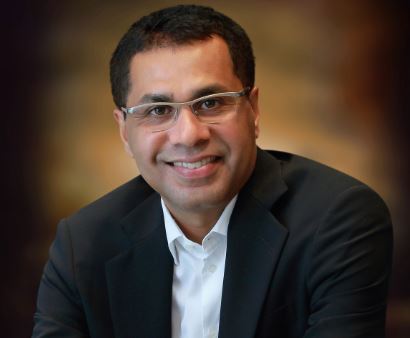KEF’s Faizal Kottikollon talks about investing in futuristic tech
KEF Holding chair Faizal Kottikollon discusses how investing in technology ties in with the long term vision of a company and how futuristic construction techniques are beginning to penetrate the GCC market.
Does the rate at which technology is advancing ever overwhelm small businesses, which have a limited expense budget? How could they cope with the pressure to change?
Technology is a long term investment and no company operating in today’s world can keep away from it. Companies should have a long term vision of where they want to be as a business and how they see themselves growing, for which they need to know the pulse of the evolving technology in their sector. To keep ahead of the game every business, no matter how big and small needs to embrace technology. While the one-time cost of adopting a certain technology could be substantial, in the long run it will help bring overheads and costs down for the business.
What are the key trends you have observed for 2016?
For us, 2016 will be a continuation of things we laid the foundation for in 2015. It will be about innovation and being a change agent for the construction industry. The technology we are bringing to this market, by way of robotics and automation in construction, will impact not only the human intervention but also cut down the cost and time taken for construction by nearly half. As Dubai gets ready for Expo 2020, we will see it adopting various advanced techniques, to help the Emirate meet its various infrastructure requirements on time and show the world that they are on the cutting edge of these technologies.
In your opinion, which one of the newly introduced technologies is something regional industries need to watch out for?
Modular construction without a doubt. Customised for the region’s harsh climate, these technologies provide GCC buildings with a guaranteed life of at least 100 years, along with shock resistant properties to better withstand seismic activities.
With UAE developers shifting their focus towards affordable homes, this technology is an ideal solution for affordable homes and large-scale mass housing schemes, due to the fast, accurate, highly efficient and cost-effective process.
There is a demand in the Arabian Gulf for schools and hospitals amid rising investments from the government and private sector. Offsite technology allows for faster completion of projects, maintaining extremely high quality standards. KEF Holdings will begin to install modular structures such as hospitals and schools across the UAE and Saudi Arabia from the second half of this year.
Could you tell us more about technological solutions provided by offsite construction?
Offsite manufacturing is emerging as a benchmark for quality construction, taking the building out of the physical site and into a controlled factory/industrial park environment. The use of this technology industrialises the entire construction process, dramatically cutting down the number of workers and the amount of materials used in the building process. This allows for more control over the final product as well as major advantages in efficiency and speed of delivery, while keeping the final product at the highest quality. Offsite construction processes are also much ‘greener.’ They use less heavy machinery and energy, thereby minimising waste. Leftover materials are always recycled and used for future projects. Construction time, costs and resources are also reduced by leveraging robotic systems, CAD and computer aided manufacturing, thus contributing to sustainable construction.
What are some of the biggest barriers the regional construction industry faces especially when it comes to adopting new technology?
To date, there has not been a lot of research done on the offsite construction market, as it is new in this part of the world. However, there are absolutely no civil structures that this technology can’t deliver, which means that if the current value of construction projects in the Middle East stands at AED11.55 trillion, that is the potential market value for off-site construction.
Are any of the barriers because of social or cultural reasons? If yes, could you tell us more about it?
We have not faced any barriers because of social or cultural reasons. The UAE has always been extremely forward thinking and has a long tradition of innovating and exploring advanced technologies. Thus, the use of offsite construction is a natural transition in this region. Offsite construction is a newer way of building things and as happens with most things cutting edge, we have found some early adopters. This trend is sure to catch up in the future as other companies see the benefits of offsite construction and follow suit.





